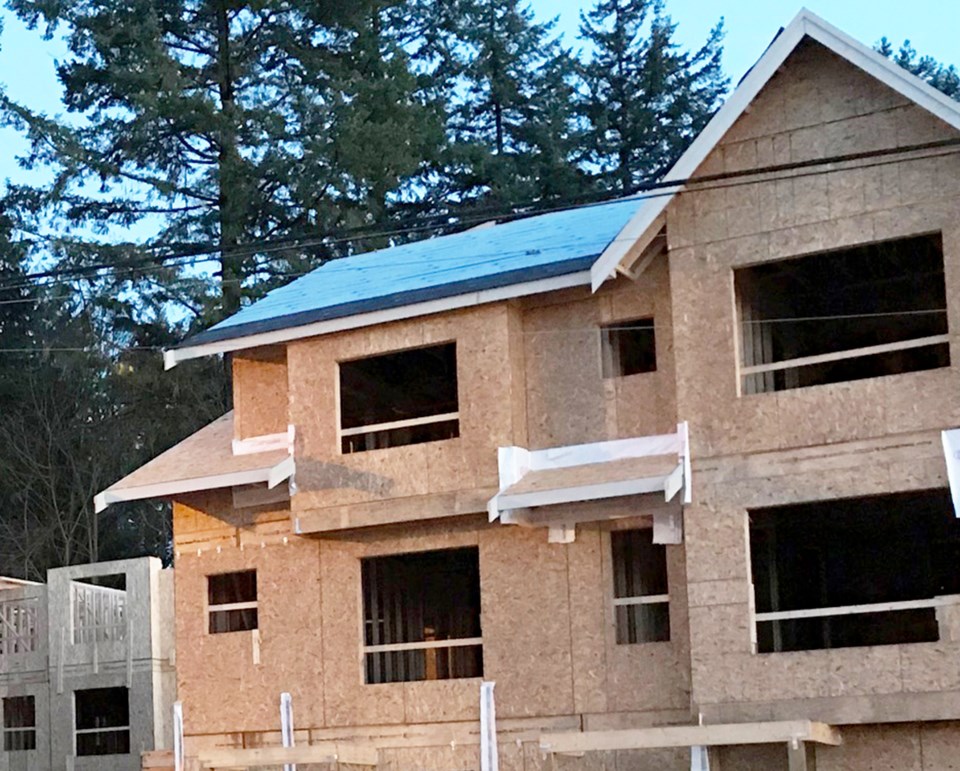The City of Surrey says that after 18 months, it is reporting significant progress in achieving its goals in its Housing Action Plan.
Halfway through the second year, the city has implemented more than 30 streamline process improvements and issued permits for more than 9,500 net new housing units.
“From exceeding the provincial housing targets, to implementing process improvements, the city is delivering on our commitment to increasing the housing supply,” said Mayor Brenda Locke in a news release. “I would like to thank the federal government and CMHC for their continued support as we work together to offer diverse and affordable housing options in Surrey. We’re dedicated to building a city for everyone – where you can live, work, learn, and thrive.”
The city also notes that in the remaining months, several other improvements are expected to be introduced to council to meet the deliverables outlined in the Housing Action Plan.
Among other initiatives, they include creating new zones for six-storey mid-rise and mixed-use buildings as well as townhouses, as well as establishing an approach for pre-approved plans including accessory dwelling units.
In late 2023, the city received initial funding of $96.5 million from the Government of Canada through the Housing Accelerator Fund, administered by the Canada Mortgage and Housing Corporation (CMHC), to implement the city’s Housing Action Plan.
A Surrey staff report notes the Action Plan targets a 27.8 per cent increase in housing supply, aiming for an average of 4,333 net dwellings issued annually and a cumulative total of 13,000 by December 2026. The final $25.6 million HAF installment is contingent upon meeting that target.
Big numbers identified in housing needs assessments
Almost 259,500 new homes will be needed over the next 20 years in four south of the Fraser communities combined, including the City of Delta.
Municipalities and regional districts were required by the province to complete interim Housing Needs Reports (HNR) by Jan. 1, using what’s called a standardized new HNR Method to calculate estimated housing needs in the next five years as well as the next 20 years.
The requirement is part of the government’s housing legislation introduced in the fall of 2023.
Completing a full Housing Needs Assessment which guided the formation of a Housing Action Plan a couple of years ago, Delta completed and submitted its interim HNR report to update the current assessment last fall.
A staff report notes the interim update assessment required Delta to add several more factors to the city’s existing 2020 HNR.
The city’s next full HNR will need to be completed by Dec. 31, 2028, and every five years thereafter.
Delta’s update identified the city requiring 9,788 units from August 2024 to August 2029, and the interim HNR also identified Delta needing 29,457 new units over a 20-year period.
The numbers are not a requirement by the province that must be met, however.
Delta’s numbers are dwarfed by the City of Surrey’s numbers in its interim HNR report, which updates that city’s last full HNR in 2022.
It identifies that city will require 169,221 new housing units over the next 20 years.
Meanwhile, the City of Richmond’s interim HNR, which updates that city’s 2021 HNR, estimates that 51,981 units are needed over a 20-year horizon.
As far as the City of White Rock, its interim HNR determined that 8,816 new units are needed in the next 20 years to address the anticipated housing needs in that city.



